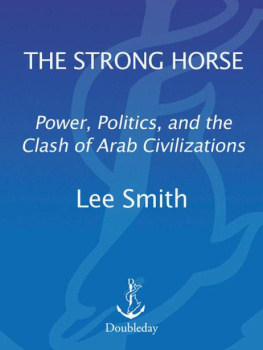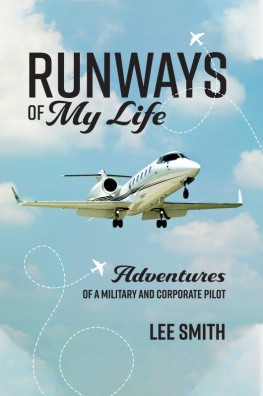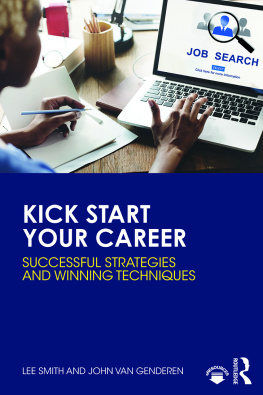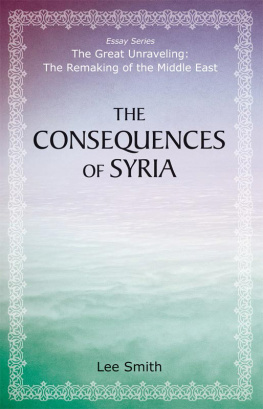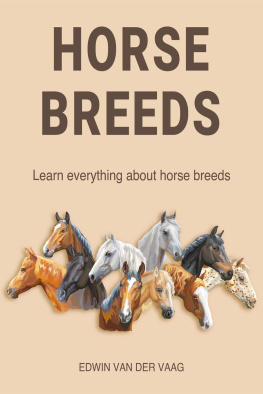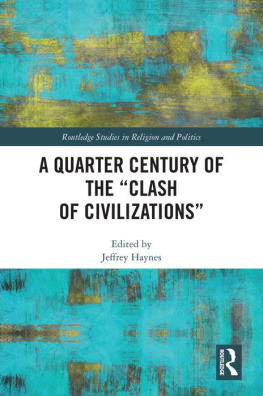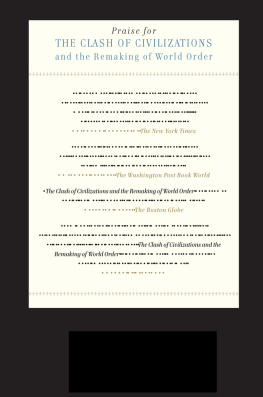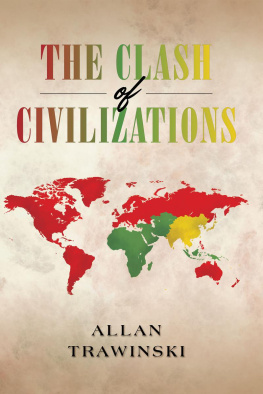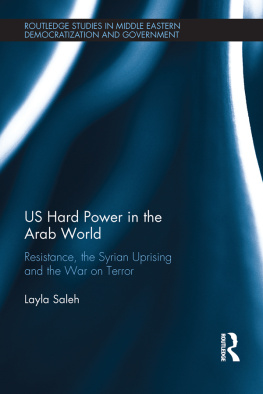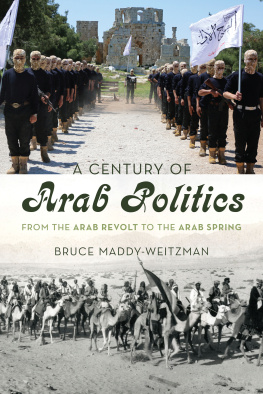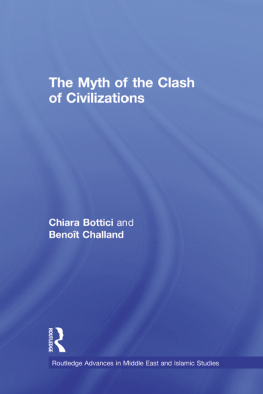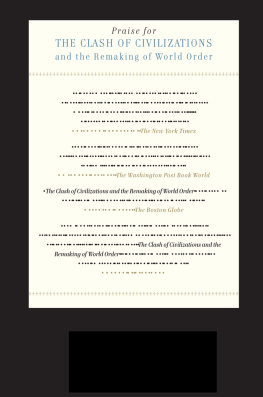Lee Smith - The Strong Horse: Power, Politics, and the Clash of Arab Civilizations
Here you can read online Lee Smith - The Strong Horse: Power, Politics, and the Clash of Arab Civilizations full text of the book (entire story) in english for free. Download pdf and epub, get meaning, cover and reviews about this ebook. year: 2010, publisher: Doubleday, genre: Politics. Description of the work, (preface) as well as reviews are available. Best literature library LitArk.com created for fans of good reading and offers a wide selection of genres:
Romance novel
Science fiction
Adventure
Detective
Science
History
Home and family
Prose
Art
Politics
Computer
Non-fiction
Religion
Business
Children
Humor
Choose a favorite category and find really read worthwhile books. Enjoy immersion in the world of imagination, feel the emotions of the characters or learn something new for yourself, make an fascinating discovery.
The Strong Horse: Power, Politics, and the Clash of Arab Civilizations: summary, description and annotation
We offer to read an annotation, description, summary or preface (depends on what the author of the book "The Strong Horse: Power, Politics, and the Clash of Arab Civilizations" wrote himself). If you haven't found the necessary information about the book — write in the comments, we will try to find it.
The Strong Horse: Power, Politics, and the Clash of Arab Civilizations — read online for free the complete book (whole text) full work
Below is the text of the book, divided by pages. System saving the place of the last page read, allows you to conveniently read the book "The Strong Horse: Power, Politics, and the Clash of Arab Civilizations" online for free, without having to search again every time where you left off. Put a bookmark, and you can go to the page where you finished reading at any time.
Font size:
Interval:
Bookmark:

To my mother, my father, my brothers, Matthew and Kevin, and my sister, Sasha
And to the other five from whom all good things came to me: Manhattan, Brooklyn, the Bronx, Queens, and Staten Island
When people see a strong horse and a weak horse, by nature, they will like the strong horse.
OSAMA BIN LADEN
ContentsCHAPTER 1
CHAPTER 2
CHAPTER 3
CHAPTER 4
CHAPTER 5
CHAPTER 6
CHAPTER 7
CHAPTER 8
CHAPTER 9
CHAPTER 10
CHAPTER 11
I would like to thank the various magazine and newspaper editors who over the last several years have helped make it possible for me to write about the Middle East. At Slate, Jacob Weisberg, June Thomas, and Meghan ORourke; William Kristol, Richard Starr, Jonathan Last, Michael Goldfarb, and Philip Terzian at the Weekly Standard; Thomas Goetz at Wired; Alex Star at the Boston Globe and then the New York Times Magazine; Kyle Crichton, Ethan Bronner, Amy Virshup, Laura Marmor, Mary Billard, Stuart Emmrich, and Maura Egan at the New York Times; Franklin Foer and Zvika Krieger at the New Republic; Michael Young at the Daily Star; Michael Karam, Faerlie Wilson, and Hanin Ghaddar at NOW Lebanon; Tariq Alhomayed at Asharq al-Awsat; Nathan Lump and Amy Farley at Travel and Leisure; Hugh Garvey at Bon Apptit; Eric Banks at Bookforum; Michael Tomasky at the American Prospect; Jim Nelson at GQ; Adam Shatz at the Nation; Sara Ivry at Nextbook; Jonathan Foreman at Standpoint; and Jose Guardia at PJM.
Among my friends and colleagues, I am deeply grateful to:
In New York, David Samuels and Virginia Heffernan; Casey Greenfield; Katherine Zoepf; Michael Caruso; Richard Chen; Tom Vanderbilt; Salle Colagi; Abdul Tabini; and Heather Caldwell.
In Washington, Harold Rhode; David and Meyrav Wurmser; my colleagues at the Hudson Institute, especially Ken Weinstein, Allan Tessler, Enders Wimbush, Nina Rosenwald, Grace Terzian, Rachel DeCarlo Currie, Katie Fisher, Phil Ross, Ioannis Saratsis, and Katherine Smyth; Nadia Schadlow; Samantha Ravich; Steven Peter Rosen; Sam Spector; Oubai Shabhandhar; Peter Theroux; David Schenker; Michael Doran; Rob Karem; Marsha Thaler-Smith; Carmen Lane; Eddie Becker and Joanie; Michael Veltri; Danny Kopp; Joseph Gebeilly; Hussein Abd al-Hussein; Amal Mudalalli; Firas Maksad; Hassan Mneimneh; Ammar Abdulhamid; Matthew Irwin; Noah Pollak; Joshua Pollack; Andrew Apostolou; and Zaynab al-Suwaij.
In Egypt, Raymond Stock; Hala Mustafa; Lobna al-Tabei; the faculty and staff at the AUC Arabic Language Institute; Awad and Marous; Josh Stacher; and Patrick Haenni.
In Lebanon, Mrs. Dina Fawaz, my mother away from home; Rita Aad; the faculty at Saint Joseph University, especially Rana Bakdache; the U.S. embassy and its exemplary staff during the Cedar Revolution, including Ambassador Jeffrey Feltman, Greg Marchese, Matt Pilcher, and Juliet Wurr; Andrew Tabler; Lin Nouehid; Norbert Schiller; Nick Blanford; the Quantum group, especially Eli Khoury, Elena Anouti, Lara Hajj, Makram Rabah, Jean-Pierre Katrib, Hussam Harb, Lina Mustafa, and Lina Silistily; Malek Mroue; Lokman Slim; Inga Schei; Hazem Saghieh; Nadim Koteich; Ahmad al-Husseini; Homer Lanier; Bill Harris; Michael Totten; Peter Speetjens; Jana al-Horr; Andrea Stanton; Charles Chuman; and Hassan Mohanna.
Elsewhere in the Arab states, Rana Sweiss; Ali abu Shakra; Malia Asfour; Jihad Fakhreddine; Sheikha Lubna al-Qasimi; Abdul Rahman al-Rashed; and Abd al-Rahman al-Alwani.
In Israel, Naomi Shultz; the Jerusalem Center for Public Affairs, especially Dan Diker and Dore Gold; Martin Kramer; Barry Rubin; Ami Isseroff; Richard Landes; David Hazony; Asgeir Ueland; Ezra Gabbay; Steven Alper; Maya Nathan; Avi Goldberger; and Stardust graduates.
Special thanks to my agent and great friend, Chris Calhoun, and all the Sterling Lord office; the staff at Doubleday/Knopf, especially the editor in chief, Bill Thomas, Stephanie Bowen, and, above all, my editor, Kris Puopolo, without whom this book could not have been written.
Tony Badran, Elie Fawaz, Jonathan Spyer, and Muhammad abd al-Raouf are great teachers all, and even better friends.
Greatest thanks go to Jim Surowiecki, a friend who sees the best in me and brought out the best in this book.
The Clash of Arab Civilizations
I t was hard not to take 9/11 personally. I was raised in New York City, so when those planes flew into the World Trade Center, it felt like a direct attack on my family and friends and myself, on the neighborhoods where Id gone to school, played, and worked, and on the Brooklyn block where I was living that beautiful summer day when the sky darkened with the ashes of other New Yorkers. It occurred to me more than once during the time I spent living and traveling in the Middle East after 9/11 that had I lived most of my life in some other American city or village, had New York not been my hometown, I might not have moved to the region some few months after to try to figure out what had happened. This book is an account of my time in the Middle East since then, and my understanding of it. My conclusion, without racing too far ahead, is that we all took 9/11 too personally.
The spectacular nature of the event was cause enough to see it as a declaration of war on America, so it is hardly surprising that Americans across the political spectrum came to think of it in the context of a clash of civilizations. Even those on the left who disdained the phrase nonetheless employed a version of the conceit when explaining that the death and destruction were by-products of the legitimate grievances that Arabs had with the United States, which was finally just a way of delivering a verdict for the other side in the same civilizational war.
I see it a little differently. I believe that 9/11 was evidence of a clash all right, but the clash that led to 9/11 was less the conflict between the West and Islam than the conflict between the Arabs themselves. In that sense, strange as it sounds, the attacks on New York and Washington were not really about us.
To be sure, a significant part of the Middle East, including Osama bin Laden, is at war expressly with the United States. And there are genuine points of conflict between the lands of Islam and the West, including a religious rivalry that dates back to the appearance of the Quran and myriad regional confrontations to which the United States strategic interests make us party. But these conflicts are just part of a system of wars that involves the entire Middle East. We are now incontrovertibly a part of these wars, but their causes and sources are to be found in the region itself, and not at the lower end of Manhattan, or even in the halls of the Pentagon. September 11 is the day we woke up to find ourselves in the middle of a clash of Arab civilizations, a war that used American cities as yet another venue for Arabs to fight each other.
I f that assertion sounds implausible, its because Americans are accustomed to thinking of themselves, in one way or another, as the source of the tumult in the Middle East. And that feeling was magnified after 9/11, when the continued eruptions of violence in the region made it hard for observers, from ordinary Americans to international affairs specialists, not to assume that the Bush administration was mostly, if not wholly, responsible for what was happening. But the problems of the region will not fade now that Barack Obama is in the White House, because they did not start when George W. Bush arrived there. Consider just a few of the clashes that preceded Bushs tenure: the intrastate Arab crises like Saddam Husseins 1990 invasion of Kuwait and Syrias occupation of Lebanon (19902005); the civil wars that wracked North Yemen (19621970) and Lebanon (19751990); wars between the state and non-state actors, like the Islamist insurgencies that ravaged Algeria (19912002), Egypt (19811997), and Syria (19791982), and the Palestine Liberation Organizations revolt against the Hashemite Kingdom of Jordan (19681971); the genocidal bouts of ethnic and sectarian cleansing, like Saddams campaigns against the Kurds and Shia, Hafez al-Assads mass slaughter of Sunnis in Hama in 1982, and the Sudanese governments campaigns against Christians and animists in the south (19812004) and now against non-Arab Muslims in Darfur. In all of these, the United States played, at most, a secondary role, and was often little more than a bystander.
Font size:
Interval:
Bookmark:
Similar books «The Strong Horse: Power, Politics, and the Clash of Arab Civilizations»
Look at similar books to The Strong Horse: Power, Politics, and the Clash of Arab Civilizations. We have selected literature similar in name and meaning in the hope of providing readers with more options to find new, interesting, not yet read works.
Discussion, reviews of the book The Strong Horse: Power, Politics, and the Clash of Arab Civilizations and just readers' own opinions. Leave your comments, write what you think about the work, its meaning or the main characters. Specify what exactly you liked and what you didn't like, and why you think so.

